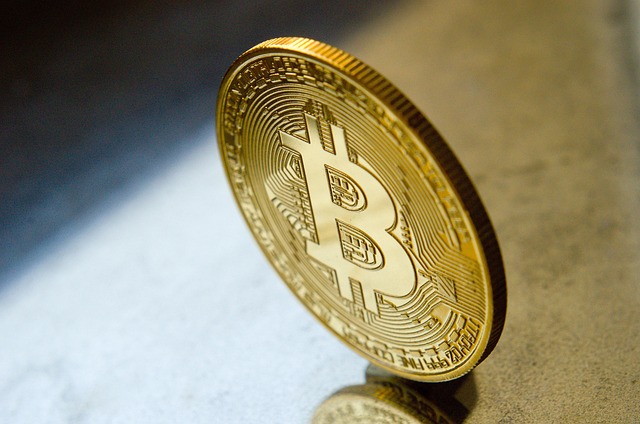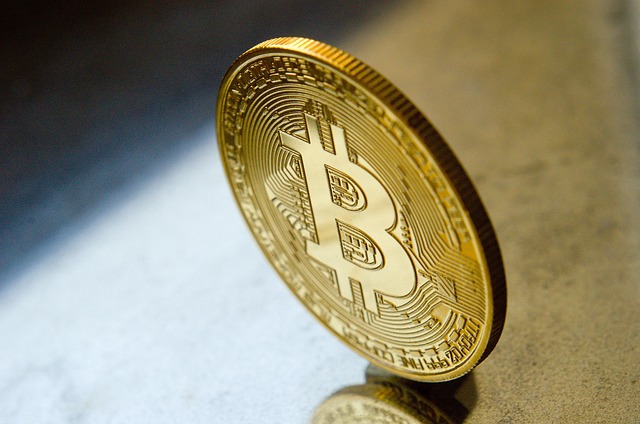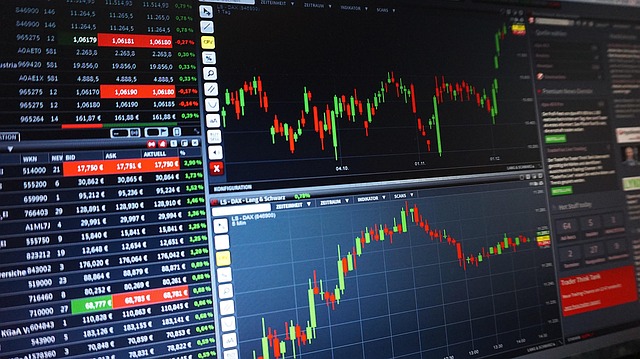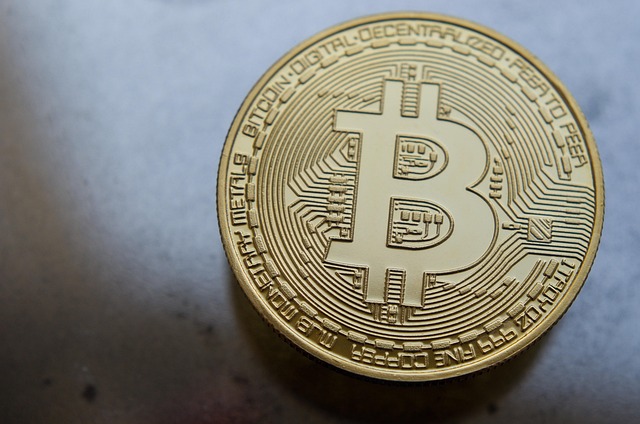Is Futures Trading Halal in 2025? A Practical Guide
Author: Jameson Richman Expert
Published On: 2025-11-08
Prepared by Jameson Richman and our team of experts with over a decade of experience in cryptocurrency and digital asset analysis. Learn more about us.
Is futures trading halal? This question is increasingly important for Muslim investors as derivatives, crypto futures, and margin products become mainstream. This article explains Islamic legal principles relevant to futures, compares different types of futures (including cryptocurrency perpetuals), reviews scholarly opinions and fatwas, and gives actionable steps for Muslims who want to trade while observing Shariah. We also point to resources, practical tools, and compliant alternatives so you can make an informed decision.

Overview: What are futures and why the halal question matters
A futures contract is a standardized agreement to buy or sell an asset at a predetermined price on a specified future date. Conventional futures markets include commodities, indices, currencies, and increasingly cryptocurrencies. Because futures involve trading contractual rights and obligations about future delivery, scholars evaluate them against key Islamic principles like riba (interest), gharar (excessive uncertainty), and maisir (gambling/speculation).
Understanding "is futures trading halal" requires both technical knowledge of how contracts work and an understanding of Islamic finance rules. We’ll cover the mechanics first, then the jurisprudence, then the practical guidance for traders in 2025.
How futures contracts work: basics and modern variants
Key features of futures:
- Standardization — Futures contracts are standardized in terms of quantity, quality (where applicable), and delivery date.
- Exchange-traded — Most futures are traded on regulated exchanges (e.g., CME, ICE, or crypto exchanges like Binance, Bybit, etc.).
- Margin and leverage — Traders post initial margin and may be subject to margin calls. Leverage amplifies gains and losses.
- Settlement — Settlement can be physical (delivery of the asset) or cash-settled (net cash payment). Crypto exchanges commonly offer perpetual swaps (no expiry) and fixed-dated futures (expiry).
Common modern variants to note:
- Perpetual futures (perpetual swaps) — Very common in crypto markets; no expiry, funding rates periodically exchanged between long and short positions.
- Cash-settled futures — Settled in cash rather than physical delivery (common for indices and some crypto contracts).
- Margin trading — Borrowing to open positions, often involving overnight funding (interest-like charges in fiat markets).
These variants matter for the halal question because issues like interest (riba) and uncertainty (gharar) can arise differently depending on whether there is borrowing, deferred delivery, or a funding mechanism.
Islamic finance principles relevant to futures
Scholars assess financial products by applying core Islamic principles. The most relevant are:
- Riba (prohibition of interest) — Any guaranteed interest or incremental guaranteed return is prohibited. Charging or paying interest on margin or swaps is examined closely.
- Gharar (excessive uncertainty) — Contracts requiring sale of what one does not own or full uncertainty about essential terms can be invalid.
- Maisir (gambling/speculation) — Pure gambling where outcomes are based on chance rather than legitimate economic activity is prohibited.
- Ownership and delivery rules — Sale of an item must meet conditions: seller must own the item being sold, terms must be clear (price, quantity), and immediate exchange is often required unless a valid Islamic contract (e.g., salam) is used.
Applying these to futures:
- Does the trader own the underlying asset at sale? If not, selling it on a future date may involve gharar.
- Is the product used for genuine risk management (hedging) or short-term speculative profit? Excessive speculation leans towards maisir.
- Are there interest-bearing or interest-like charges (funding, overnight fees) that resemble riba?

Scholarly views: why opinions differ
There is not a single unanimous ruling across the global Islamic scholarly community. Opinions vary because modern derivatives were not present in classical fiqh, so scholars analogize to classical contracts (e.g., bay` salam, bay` al-kali, options) and apply principles differently. The main positions are:
- Generally impermissible (haram) — Many scholars consider conventional futures and options impermissible because they involve selling what one does not own and carry excessive gharar and speculative elements. This view is common in traditionalist rulings.
- Conditionally permissible — Some jurists allow futures under strict conditions: asset ownership or possession at the time of sale; genuine hedging (not speculative); no interest-bearing borrowing; clear contract terms; and avoidance of perpetual funding or exploitative fees.
- Permissible as risk management — Other scholars accept derivatives when used purely for hedging by producers or end-users (e.g., farmer hedging prices), not for speculative trading.
Examples of institutional guidance:
- AAOIFI (Accounting and Auditing Organization for Islamic Financial Institutions) provides standards for derivatives and stresses risk management and Shariah supervision. See AAOIFI for detailed standards: AAOIFI.
- Academic and fatwa opinions differ. For background on futures as a product, see Futures contract - Wikipedia.
Crypto futures and particular concerns
Crypto futures introduce additional considerations:
- Asset uncertainty — Do cryptocurrencies qualify as commodities, currencies, or property? Scholarly views differ, and that affects whether futures on them are permissible.
- Perpetual swaps — Funding rates exchanged between longs and shorts can resemble interest-like transfers, raising riba concerns.
- Counterparty and exchange practices — Many crypto exchanges offer margin trading, overnight fees, liquidation mechanics, and centralized custody — all of which must be evaluated for compliance.
Because of these complexities, many Muslim traders ask, "is futures trading halal for Muslims if it's crypto?" The answer again depends on contract design and intent. For technical education and safer trading behavior, consider reputable courses like the Binance trading course in Urdu 2025 which covers derivatives mechanisms and risk — available here: Binance Trading Course in Urdu 2025.
Detailed jurisprudential analysis: classical analogies and modern rulings
Two common classical contracts are used as analogies:
- Bay' al-salam — A forward contract in which full payment is made now for delivery of specified goods at a future date. Salam is valid when conditions are strict: standardized goods, immediate payment, specific delivery date, etc. Salam was designed to meet needs of commodity producers. Some jurists argue futures could be acceptable if structured like salam (with payment upfront and delivery later).
- Bay' al-kali (deferred sale) — Sale with deferred payment but immediate delivery of goods. This differs from futures where delivery is deferred too.
Major objections to standard futures are:
- Selling what one does not own (short-selling) — Classical fiqh generally disallows selling something one neither owns nor possesses.
- Excessive uncertainty about essential contract terms — especially when both price and delivery are uncertain.
- Pure speculation — if the transaction is essentially a zero-sum bet rather than an economic activity.
Some modern scholars accept derivatives for hedging and risk management, but caution about speculative use. For instance, hedging that stabilizes real economic activity (e.g., a shipping company hedging oil prices) is more acceptable than day-trading futures purely for speculative profit.

Practical criteria used by scholars to judge permissibility
When assessing a specific futures product, ask these practical questions (a checklist you can use):
- Is the underlying asset legitimate and defined (e.g., recognized commodity, currency, or approved crypto)?
- Does the seller actually own the asset or an acceptable transferable right at the time of sale?
- Are the contract terms (price, quantity, delivery date) clearly specified?
- Is the trade primarily for hedging real economic exposure or for speculative gain?
- Are there interest-like charges (funding rates, swap fees, overnight interest)? If so, can they be avoided or purified?
- Is leverage being used (borrowed funds)? If yes, does that involve riba?
- Is the exchange transparent and regulated, with clear settlement and custody mechanisms?
If most answers are favorable and you have Shariah supervision or credible scholarly backing, some scholars may consider participating permissible under conditions. Otherwise, caution is recommended.
Common real-world scenarios and rulings
Here are typical scenarios and how scholars often view them:
1. Farmer hedges crop prices using exchange-traded futures
Many scholars view hedging by producers as permissible because it protects real economic value and reduces risk rather than creating speculative profit. This is closest to the original public interest function of derivatives.
2. Day trader uses high-leverage crypto perpetuals to scalp price moves
This is frequently judged as impermissible by conservative scholars due to excessive speculation (maisir), selling what one doesn’t own, and interest-like funding charges.
3. Institutional hedging of currency or commodity exposures
Large corporations often use hedges to stabilize operations. With proper structure and oversight, many scholars permit such uses.
4. Retail trader on margin with overnight funding
Margin trading with overnight funding often triggers riba concerns. Some brokerages offer "Islamic accounts" that remove swaps but may impose administrative fees — these are debated among scholars regarding permissibility and necessity to purify income.
Practical guidance for Muslims who want to trade ethically in 2025
If you consider futures trading, follow this practical roadmap to lower Shariah risks and make a well-reasoned decision:
- Educate yourself about contract terms. Learn the exact mechanics, settlement, and fees. Courses and technical guides help — e.g., the Binance trading course linked above helps you understand crypto derivatives mechanics: Binance Trading Course in Urdu 2025.
- Avoid interest-bearing borrowing. If margin involves interest, it can be problematic. Some exchanges offer zero-fee or swap-free accounts; scrutinize the terms.
- Use derivatives for hedging, not speculation. If you have a real-world exposure (holdings, business revenues), a futures contract used to hedge is more likely to be acceptable.
- Prefer cash-settled or physical-delivery contracts that remove uncertainty. Physical delivery or prepayment designs aligned with salam principles are more defensible.
- Minimize leverage. Leverage increases risk and can edge toward gambling behavior if used irresponsibly.
- Consult a qualified Shariah scholar or a recognized Shariah advisory board. Individual circumstances and product details matter; get a tailored ruling.
- Keep records and purify questionable income when necessary. If you earn from a mixed source containing interest-like elements, consult scholars about purification (removing impermissible portions by charity).

Shariah-compliant alternatives to conventional futures
If conventional futures look too risky from a Shariah perspective, consider alternatives:
- Spot trading — Buy and hold the actual asset you own (avoid margin and derivatives).
- Sukuk and Islamic bonds — For fixed-income exposure without riba, consider well-structured sukuk.
- Islamic hedging products — Some Islamic financial institutions design Shariah-compliant hedging instruments with approval from Shariah boards.
- Structured salam contracts — For commodities, salam contracts can be used when structured properly.
For those learning technical skills needed to trade responsibly in spot markets or manage exposure, practical guides like the Ethereum block time explainer can help you understand network mechanics and transaction timing: Understanding Ethereum: Average Block Time and Its Impact.
Practical trading tools and reliability — avoid technical pitfalls
Even if a product is judged permissible, trading requires reliable tools and execution. Issues like missed alerts, delayed orders, or platform errors can increase risk. Keep these practical tips in mind:
- Use trusted, regulated exchanges with clear contract specs and user protections.
- Maintain robust risk management: position sizing, stop-losses, and diversification.
- Ensure your charting and alert systems work. If alerts fail, you could be unable to manage positions — check resources like this guide for quick fixes to TradingView alerts: TradingView Alerts Not Working — Quick Fixes.
Exchange options and account considerations
When selecting an exchange, look for transparency, strong custody arrangements, and clear fee structures. If you choose to trade, here are some popular exchanges where you can open accounts (ensure you carefully read terms and choose swap-free or spot-only options if you want to reduce riba concerns):
- Open a Binance account (referral) — Binance offers a broad range of spot and futures products; study their contract specs and funding rates carefully.
- Open a MEXC account (referral) — Another multi-product crypto exchange; review margin and fees.
- Open a Bitget account (referral) — Bitget provides copy trading and derivatives; check funding rate mechanics.
- Open a Bybit account (referral) — Bybit is derivatives-focused; carefully review perpetual swap funding and margin rules.
Note: inclusion of these links is informational. Choosing an exchange does not determine permissibility—a product-by-product and transaction-intent assessment is necessary.

Case study: evaluating a crypto perpetual swap from a Shariah perspective
Example: A trader contemplates opening a BTC perpetual long with 10x leverage. Key evaluation points:
- Ownership — The trader does not own BTC when taking a leveraged long (position is synthetic). Does the exchange require actual collateral denominated in BTC or stablecoin? If not, ownership concerns arise.
- Funding rate — Perpetual contracts charge/credit funding between longs and shorts to peg price to spot. If this funding resembles interest, scholars may view it as problematic.
- Speculation — 10x leverage used for short-term scalp is speculative and resembles gambling.
- Mitigants — If the trader holds equivalent spot BTC (thus hedging rather than pure speculation) and uses derivatives to manage risk, the case for permissibility strengthens.
Conclusion for the case: Most conservative scholars would advise against 10x leveraged perpetuals for retail speculators. Hedging with matching spot holdings and limiting leverage could reduce Shariah issues, but you should seek a specific scholarly ruling.
FAQ — Quick answers
Q: Is futures trading halal or haram?
A: There is no single answer. Many scholars consider conventional speculative futures haram because of gharar and maisir; others permit specific, well-structured futures used for hedging or when ownership and contract terms meet Shariah conditions. Consult a qualified scholar for your exact situation.
Q: Are Islamic accounts on exchanges safe for futures trading?
A: "Islamic" swap-free accounts often remove overnight interest but may impose administrative fees. Their permissibility depends on fee structure and contractual details — check Shariah board approval and get a scholar’s view.
Q: Can crypto trading be made halal?
A: Spot trading of crypto may be permissible if the asset is considered legitimate and transactions avoid interest and gambling. Derivatives add complexity; structure and intent matter.
Q: What should I do if I already traded in futures and suspect some income is impermissible?
A: Consult a knowledgeable scholar about purification (discharging the haram portion to charity) and keep good records. Many scholars recommend donating impure gains without counting it as zakat if they were derived from doubtful or impermissible sources.
Actionable checklist before you trade
- Read the product terms: margin rules, funding rates, settlement method.
- Decide your intent: hedging (preferable) vs speculation.
- Avoid excessive leverage and overnight borrowed funds.
- Choose spot or physically delivered contracts where possible.
- Use reputable exchanges and test alerts/orders (see TradingView alert fixes linked above).
- Consult a Shariah scholar and document their guidance.
- Consider alternative halal investments if in doubt.

Resources and further reading
- Futures contract — Wikipedia (technical background).
- Introduction to Islamic Finance — Investopedia (principles overview).
- AAOIFI — Standards and Guidelines (authoritative standards for Islamic financial institutions).
- Practical guides and technical fixes: TradingView Alerts Not Working? Quick Fixes.
- For learning about exchange mechanics and trading responsibly: Binance Trading Course in Urdu 2025.
- For blockchain-level understanding relevant to settlement and timing, see: Understanding Ethereum: Average Block Time and Its Impact.
Conclusion — a balanced, actionable summary
So, is futures trading halal? The short, careful answer is: it depends. Conventional, highly leveraged, speculative futures (especially perpetual crypto swaps with funding fees) are judged haram by many scholars because they can involve riba, gharar, and maisir. However, derivatives used for legitimate hedging, structured under Shariah-compliant frameworks, or designed with physical delivery/prepayment mechanics that align with classical contracts may be permissible under certain conditions.
Practical steps if you’re a Muslim considering futures in 2025:
- Prioritize education and proper product understanding (see linked courses and technical guides).
- Use derivatives only for hedging real exposures, avoid high leverage and overnight interest-bearing margin.
- Prefer spot and physically settled contracts when possible and consider Shariah-certified alternatives.
- Consult an authoritative Shariah scholar for personalized guidance and document their ruling.
If you decide to trade and need suitable platforms, review them carefully; here are some commonly used exchanges (register links provided for convenience): Binance (open account), MEXC (open account), Bitget (open account), and Bybit (open account). Always read terms and seek scholarly advice before engaging in derivative markets.
For ongoing learning, combine technical resources with Shariah guidance to trade responsibly and in line with your beliefs.